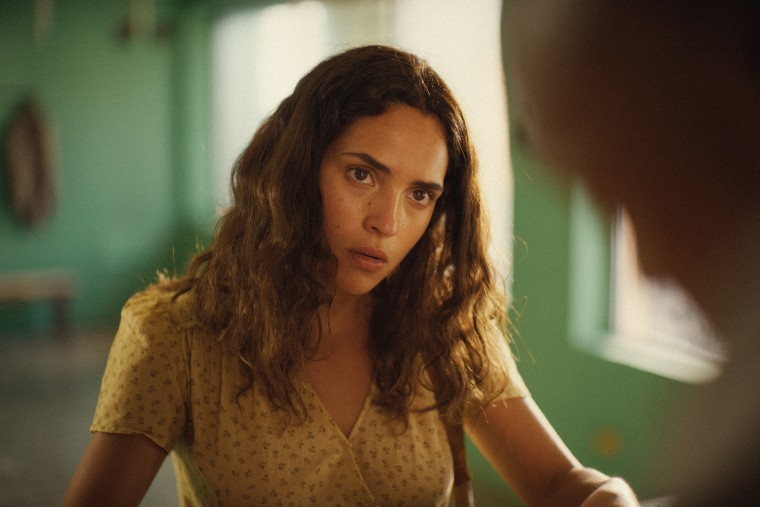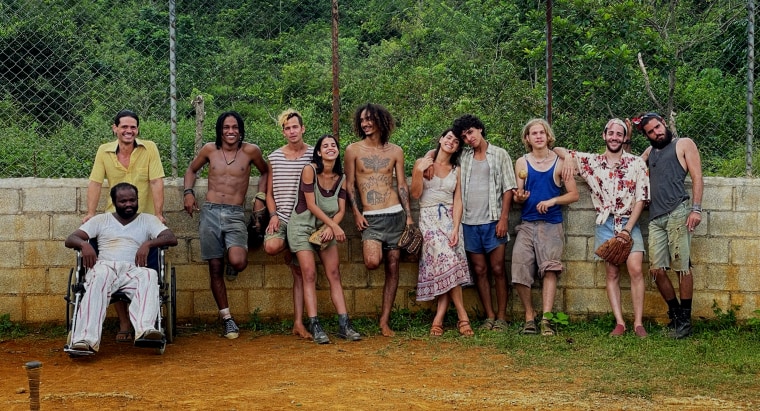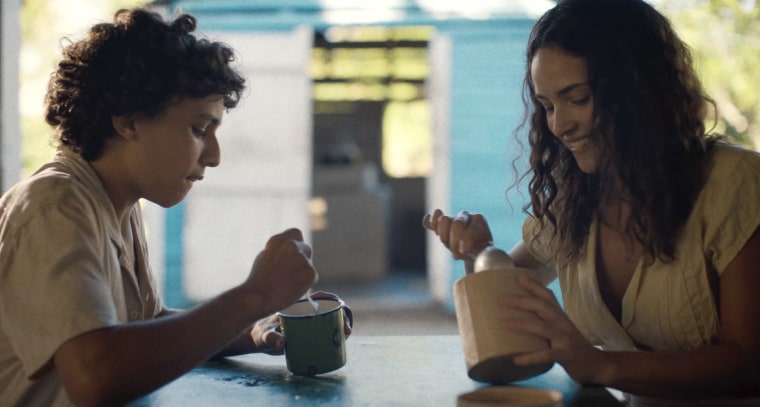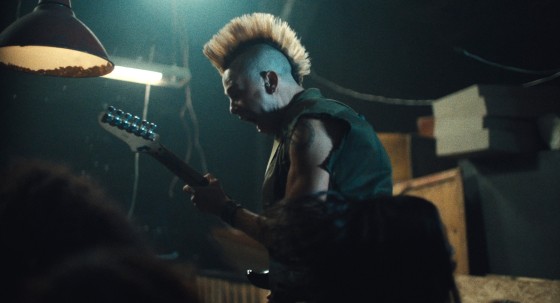A coming-of-age movie with a dramatic punk rock twist has a storyline that may sound unreal, but it's based on true events.
In "Los Frikis," set in early 1990s Cuba, hundreds of young, disenfranchised Cubans inject themselves with HIV during the early years of the AIDs epidemic, hoping to escape political repression by going inside government-run clinics, or sanitariums.
Based on true events, the film takes its title from the spanish translation of the word “freaky,” referring to the punk rock movement that came together in Cuba during the 1980s and 1990s.
“I grew up in Miami, I have Cuban family, Cuban friends, but I didn’t know this story specifically, so it was very important for me to tell it,” said one of the movie's leads, Puerto Rican Guatemalan actor Adria Arjona.
Arjona, who starred earlier this year in the romantic comedy crime movie "Hit Man" and is known for her roles in the series "Andor" and "True Detective," spoke to NBC News alongside two of the movie's co-stars, Héctor Medina and Eros de la Puente.
"Los Frikis" was written and directed by Tyler Nilson and Michael schwartz, creators of "The Peanut Butter Falcon," the 2019 comedy drama about a young man with Down syndrome who escapes from a care facility.

During the AIDs crisis, Cuba's sanitariums drew both praise and criticism. While they were credited with containing the spread of HIV on the communist island, the clinics were described as “a pretty prison” by Dr. Jonathan Mann, the first AIDs director at the World Health Organization.
According to an article in The Lancet, Cuba had 927 cases of HIV seropositivity and 187 cases of AIDs as of May 1993. By comparison, neighboring Puerto Rico, with roughly one-third the population of Cuba, had over 8,000 cases of AIDs at the time, and New York City, with a population closer in size to Cuba, had 43,000 patients with AIDs then.
But Cuba’s health policy led to "unintended consequences," The New York Times wrote in 2012 about this period.
“To stay out, some Cubans tried to avoid testing. But a few others, usually teenagers estranged from their families, deliberately got themselves infected to get in,” The New York Times reported.
Patients were initially confined to the medical center by the military. But life inside, which ultimately inspired “Los Frikis,” could also be less austere than what these punk rockers faced on the streets.
“Inmates got food, medical care and their old salaries; theater troupes and art classes formed. Gay men could live together, which was not true in the macho culture outside,” The New York Times reported.

“Los Frikis” tells the story of this second young group, who lived in a Cuba that was increasingly isolated after the fall of the Berlin Wall in 1989 and the ensuing demise of the soviet Union and the communist bloc. Fidel Castro’s revolutionary government cracked down in response to dissidents and others who didn't fit in.
“They’ll throw you in jail for anything here. It’s impossible to survive without breaking the law,” Paco (played by Medina), one of the punk rockers in the film, says.
Paco, like other young people, believed he could escape from government repression by entering a sanitarium after injecting himself with HIV. Punk bands started forming at these medical centers, and recorded cassettes inspired hundreds to self-inject.
But many would soon face a rude awakening as they died of AIDs; it would be years before the current treatments that have made it possible to live with HIV as a manageable condition.
Medina — who will play Raúl Castro, the brother of Fidel Castro and the former president of Cuba, in an upcoming movie with Al Pacino — said that he prepared for his role in “Los Frikis” by speaking to a sanitarium doctor who now lives in the U.s.
The doctor had worked at Los Cocos, a sanitarium about 30 minutes southwest from Havana by car. He told Medina that it was painful to remember, since he had become friends with his patients who later died of AIDs.

Medina said much of the punk music that Los Frikis made at the time was not preserved. But viewers could still connect with the very positive message of their culture in the film, which shows how they found freedom in friendship, love and the communities they created at the sanitariums.
This message, Arjona said, transforms the “Frikis” from scary outcasts to relatable people who are vulnerable and want to heal from different traumas.
In the movie, Arjona’s character, María, tells Gustavo (played by de la Puente) that “you can’t expect to hold onto anything.”
Faced with the deaths of her peers, María poetically says that loved ones, sunsets and even cherished animals like horses eventually disappear.
This makes de la Puente think about one of the most enduring messages from the Frikis movement.
“You don’t need many things to have everything,” he said. “I am referring in the context of the film, and how that group of people becomes a family and creates such a beautiful experience in a moment from the history of Cuba that was very empty.”
“Los Frikis” releases in New York and Los Angeles on Friday and select movie theaters nationwide Dec. 25.
